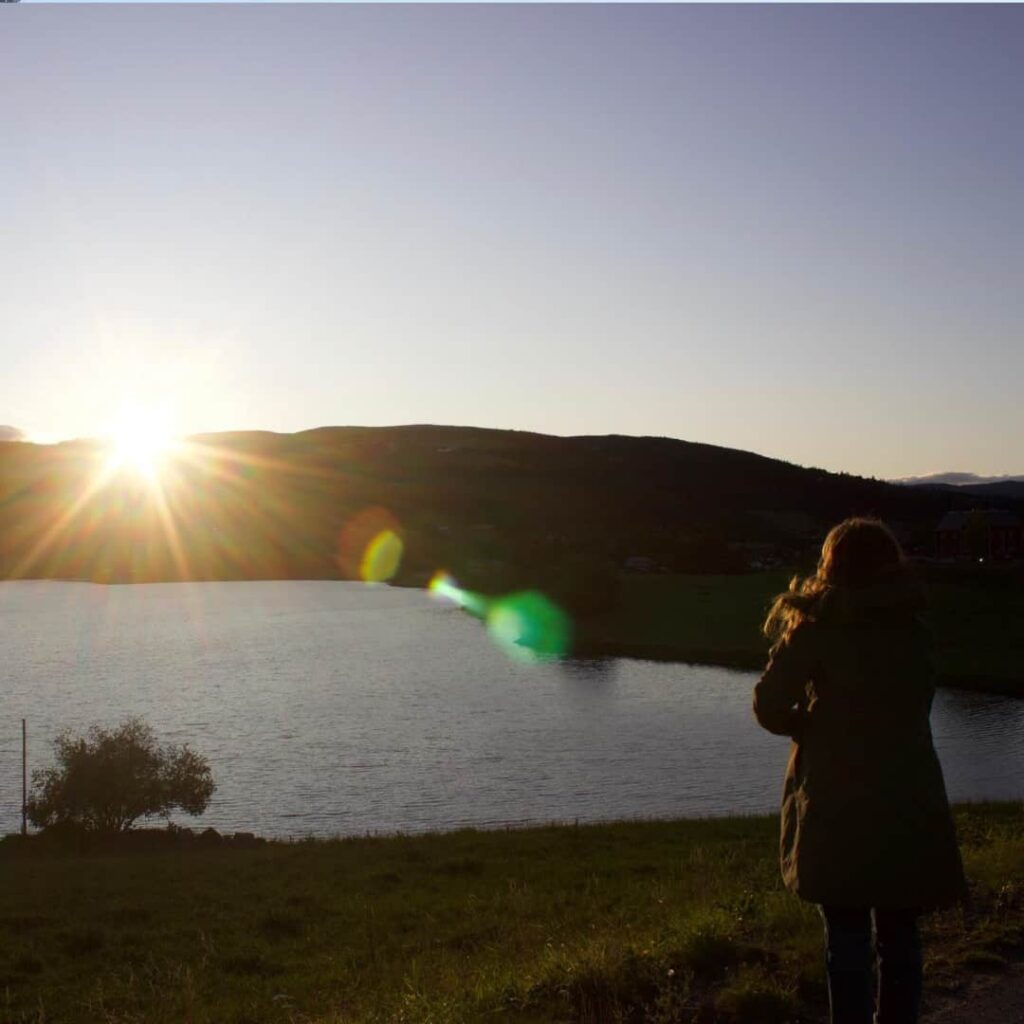Table of Contents
This is something that many of you are interested in incorporating into your work with clients. Maybe you don’t want to just hand out herbs and keep it that way, you want to incorporate more of that spiritual side into your work with people. Simply praying for people is a great way to do that. Since this is something that a lot of other people are interested in, and it’s not something I talk about that much, I thought it would serve you well.
First, Build Trust
This has been any evolving aspect of my work with people over the years. It’s about following your sense of the person, especially when you’re just starting to work with someone. One of the most important aspects of starting a new client relationship is building and developing trust. You want your client to trust you. You want them to feel comfortable with you. You want them to ideally like you and enjoy your presence.
If they don’t like you, if they don’t trust you, if they don’t feel comfortable with you, they aren’t going to open up as deeply as they would otherwise. One of the invisible things that we’re working toward as practitioners is developing trust with the client. And that’s done a number of ways, ideally getting results, helping them, being kind and friendly and compassionate with them, listening to them—really listening to them—and following what their needs are now.
One way that that trust can be negatively affected is by making them feel uncomfortable. Someone may come to you for a very first session and they don’t know you, they don’t know your work, maybe they don’t know much about herbs or herbalism, maybe they’re coming to you with their own particular belief system or religion or way of seeing the world. If you just shake their hand and jump right into praying in your own unique way of praying, that could very well make someone feel uncomfortable. It might turn them off. Maybe it’s not in accordance with their spiritual or religious beliefs, and that is going to immediately kill the vibe. So I don’t start with prayer anymore, because I learned from experience the hard way that unless you already know the person and you know that there’s a congruency there, it’s good to wait.

It’s good to go through the intake process, so you know what’s going on for that person. It’s hard to say a prayer for someone if you don’t know what to pray about, if you don’t know what their struggle is, if you don’t know what their life is like. That’s what the process of doing the intake and the conversation and the interview is all about. You’re having a conversation, a co-creative exploration with this person about their life. You want to be able to put yourself in their shoes. You want to understand what it feels like to be this person and what it feels like to experience what they’re going through. That is not an intellectual exercise; it’s a heart exercise. It’s an exercise in empathy, in compassion, in opening yourself up to connect with that person on a very deep level and do your best to understand what it is like to be this person. What are they going through and what are they struggling with? It’s hard to know that right off the bat.
Trust Your Feeling, But Ask Your Clients
So I like to encourage people to go through the intake, go through the interview process, do all of the case history and primary complaint, and dig into what’s going on in their life. And then from there, usually you’ll feel if someone is opening up and feeling good about the way things are moving. You’ll just have a feeling if someone’s into it or not. Oftentimes if I’m working with someone new, I’ll ask them. If at the end of the session I’m feeling like prayer would be something that would encourage and uplift and support them, I’ll say, “One part of the work that I do is that I see our health as being an integral part of the spiritual side of our life. I would love to say a prayer for you and for your life to support you. Is that something that you feel comfortable with?” And because of the nature of my work—people that come to me are coming to me because of that spiritual orientation of the way that I see health and healing and herbal medicine—most people that come to me are pretty open to that. But there have been times where people say, “No, I think I’m okay,” or “No, I don’t think that would make me feel very comfortable.” But 99 percent of the time people say yes.
Prayer Is Medicine
A prayer is medicine. A prayer is healing because you’re speaking to something greater than ourselves. When I pray, I’m praying to God, I’m praying to the creator, the source of all of life. There’s a healing power there. The creator or God or whatever word that you want to use is the ultimate medicine. The most powerful medicine is the creator of all of the herbal medicines that we use. All of that healing power is there. For me, when it comes to saying a prayer for a person in a consultation, I’m orienting it in a way that it’s going to help that person, that it’s going to heal that person, maybe heal their heart and their mind and their body too.

Typically I approach prayer from the heart and follow my sense of how that person can be supported. It comes from wanting the best for that person, wanting that person to heal, wanting that person to feel good, wanting their body to be rejuvenated, wanting their mind to be clear, wanting their heart to be open and strong and full, and wanting their life to be good—their whole life. Sometimes that involves praying about their family or praying about their home or praying about their work or praying about their hardships and the struggles that they go through in their life, but also praying for good things too. It involves praying about the hard stuff and the challenges and the darker side and the things that they struggle with, but also praying to bring good things and good blessings into their life.
That’s how I tend to orient it. I don’t have a script. I don’t have a pre-set way that I go about doing that. To me, it’s all about following the heart and following my empathy and my compassion and my caring for that person and wanting the best for them. That’s the place that it has to come from. You don’t want it to come from a place of wanting it to sound good or wanting them to think you’re so spiritual. There can’t be anything that’s going to feel weird. It’s not going to feel authentic, because it isn’t authentic. When you’re praying for another person like that, your heart has to be clear. Your mind has to be clear, and the prayer has to be coming from the right place. That’s where I believe a prayer can be healing for people. There are whole traditions of medicine where prayer is a critical part. We see this in Western medicine. We see this in many indigenous systems of medicine where there are healers that the way that they heal people is through prayer.
I do my best to incorporate prayer into my work with people. It’s amazing how much healing happens through that. I can’t tell you how many times I’ve seen people have emotional releases through that prayer, because sometimes no one’s ever done that for them. Sometimes people don’t know how to pray for themselves. They don’t know how to ask for help. Maybe that’s something new for them. For you as a healer with a good heart and with caring and kindness and compassion, and you want that person to heal, you can step into that role and be a bridge between that person and God to bring healing into their life.
Prayer Needs to Come From the Right Place
This is something that everyone finds their own way through it. No one prays the same, because no one sees things exactly the same. You’re going to pray for that person from your unique vantage point and how you see that they need help. The most important thing here is that, if you are coming from a place of genuinely wanting to help them and your heart is in it for the right reason, it’s going to go good. You don’t have to be incredibly eloquent. You don’t have to speak in poetry. It can be very, very simple. It can be as simple as “God, heal this person now. Bring healing into their life so they can feel good again.” That’s it—it doesn’t have to be anything fancy.
I want to encourage you to pray if this is something that you feel called to do for people. It’s good. It helps people. The main thing is that you want to develop trust first. You want to help that person feel comfortable first, because if they’re coming to you for allergies or something and then all of a sudden you’re praying, and they’re like, “Wait, but I haven’t even said anything yet. What is going on here? This is kind of weird.” We don’t want that to happen. So make sure you feel the person out.
If things feel open and they’re flowing and they feel good and you ask them and check-in, if they feel comfortable with that and you’ve got their permission, that creates an opening for you to enter in there, and that’s good. I want to spare you of any potentially awkward moments or making someone feel uncomfortable because I have made that mistake and it was uncomfortable for both of us. I could feel that they felt weird, and then that made me feel weird. And then I thought, “Oh, maybe I shouldn’t have done that.” Hopefully, you don’t make the same mistakes that I have.
Prayer Is Important and It Works if You Believe in It
An important thing to remember is that you have to believe in it. Don’t just talk. There’s a way that you orient your heart and your mind. You’re putting a faith and a belief in your prayer that gives it healing power. It’s hard to explain, but the best way that I know how to explain it is that you don’t want to pray for a person and be like, “Well, I don’t know. I hope it works.” That just kind of killed it a little bit. You have to believe in it with your whole heart and your whole mind and be confident in that, because that’s what’s feeding that power. You’re acting as the bridge between that person and God, and the minute you start doubting it, or you don’t believe in it or anything like that, you dammed the flow of the river, so to speak, and it’s not going to get through and it’s not going to work. So believe in yourself, have faith, have belief in that. And it will help people.







